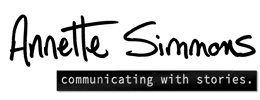“Ships at a distance have every man’s wish on board.”
From a distance, storytelling also seems to have every man’s wish on board. There is an initial euphoria when you consider that once you learn how to tell stories that alter perceptions, conclusions, and actions you might become captain of all the ships and invent “Get out of jail free” cards for anyone who wants a story of absolution, whether they deserve it or not. Over time, like King Midas, you will discover that getting everything you want inevitably produces unintended consequences. When technology alters moral stories, it changes the meaning and the morals of those stories. King Midas did not anticipate that his golden touch would kill his daughter. In the story, his personal experience of watching the light in her eyes go out carries a sensory impact; we get the message. But when calculated on a spreadsheet, the promise of an infinite return on investment (ROI) after sacrificing just one person can seem like a viable investment strategy. What’s more, people who value utilitarian reasoning now use data distance to create enough emotional distance that they can characterize one person as a “small sacrifice” and therefore a reasonable price to pay. The question is, are you at risk of becoming one of them?
Each story we tell to achieve a personal or professional goal delivers suggestions on discerning right from wrong that imprints in us and in our listeners patterns of thinking about life. Calling this pattern “the moral of the story” is merely a functional way to discuss how stories shape our expectations about how the world works—in ways that then concretely shape how our world works. When I worked in advertising, we told stories that sent a clear message/moral that the pleasure and status of a new car was more valuable than the utility of driving the perfectly good car our customers had bought from us two years before. Over time, stories like this tend to teach us a lesson (or moral) that it is normal to trade sustainability for immediate gratification. Many storytellers look for ways to avoid unintended negative consequences. Others abdicate responsibility for the morals their stories encourage because it’s too complicated or not their job. That’s fine too. However, for the storytellers who, like me, want to ensure that storytelling continues to preserve morals, as well as make money, I’ve added two new chapters to this book. This first new chapter explores how different patterns of advice have developed based on the implicit agendas of the advice givers’ points of view. The second explores how storytelling might be evolution’s method of preserving our ability to collaborate in order to survive.
We can’t control how the “morals” of our stories will play out, and can’t confirm if any particular story is weakening our moral survival system until it’s too late. The best we can do is pay attention to the messages and morals embedded in the stories we tell and try to minimize the risk of doing harm to the people we care about. This raises an important question every storyteller should ask himself, “Who DO you care about?”


2 thoughts on “Storytelling: Moral Survival System (Part One)”
Annette –
Great insight!
You’re pushing all my buttons with this one. Nautical references for an old submariner, the law of unintended consequences, “Don’t make me think” attitudes, managing risk (I’ve done risk assessment and data analysis for over 35 years), and the differences between immediate gratification and the infinite game (as Simon Sennick calls it).
And though not directly stated, there is an implied question about moral relativism and eternal big T truths. And you wrap it all up with a question not unlike the timeless philosopher’s question, “What is the meaning of life?” with “Who DO you care about?” Could it be that your question is the answer to the first one?
I used to tell my staff doing risk assessment that the fastest way to get in trouble with me was to do one of two things. Indicate by their actions the attitude, “Don’t make me think.” or proceed with the idea, “Did you have a number in mind?”
I’ve always found that the ancient Greek tragedies and Aesop’s fables are some of the best places to look for those answers. There is something eternal in those “old” morals and stories that dovetail with the modern technological, evolutionary world. Maybe Darwin was just restating them in a new form so we could eventually get back to what matters.
Steve
Yes, one of the things I love about Aesop’s Fables is the emphasis on long term thinking…that shows how silly arrogance, selfishness, and infighting are in the long term.